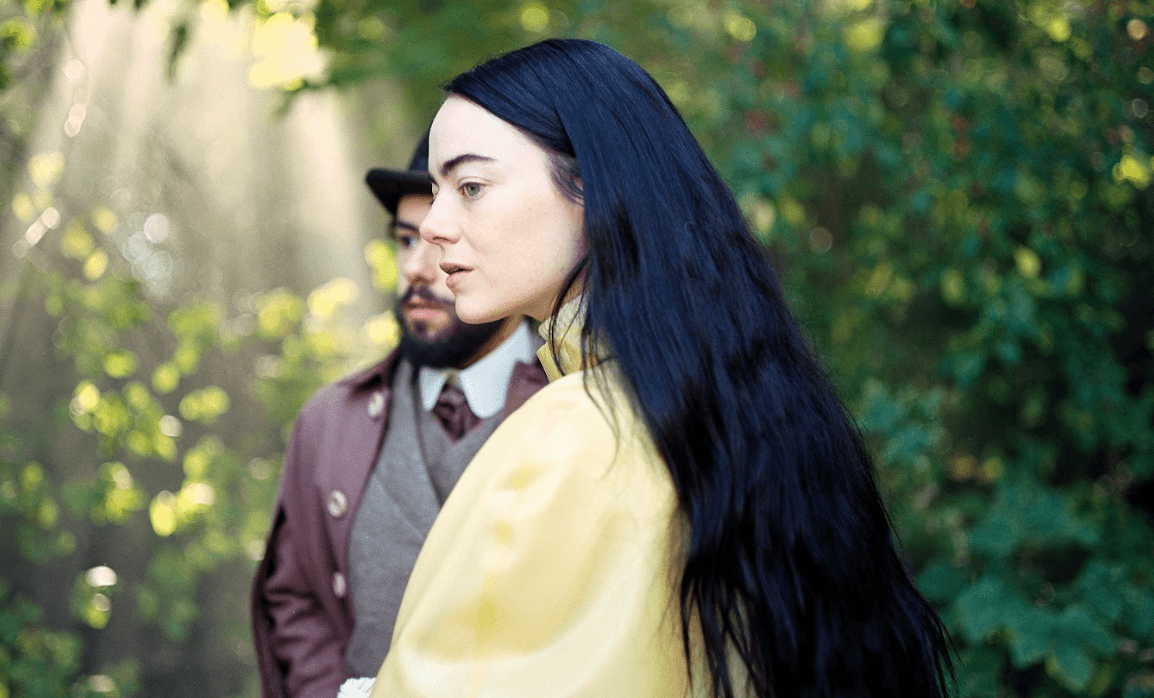SUMMARY
This is AI generated summarization, which may have errors. For context, always refer to the full article.

Spoilers ahead.
Upon another viewing, Poor Things, an adaptation of Alasdair Gray’s 1992 novel, makes much more sense. Teaming up with screenwriter Tony McNamara yet again, director Yorgos Lanthimos, of absurdist dramas Dogtooth and The Lobster, returns exactly to that aria of filmic daring to unleash a new beast reveling in grandiosity and erotic fantasies. Through fisheye framings and bizarre angles, which can be voyeuristic at times, Lanthimos traps us into the freaky world of Bella Baxter (Emma Stone), whose life begins with a clean slate after mad surgeon Godwin Baxter (Willem Dafoe) or “God,” as Bella calls him, reanimates her brain and entire existence.
Early into the film, Bella quite literally figures her first steps and first words. We marvel at her first impulses, even when it’s twisted. And because Bella is a Frankengirl, among other science anomalies in Godwin’s Victorian house, her surrounding conditions must be controlled — conditions helped maintained by Max McCandless (Ramy Youssef), Godwin’s research assistant and to whom Bella is later engaged, and housekeeper Mrs. Prim (Vicki Pepperdine).
Knowledge of the outside world escapes Bella, from which her frustration stems. And this frustration only grows further, especially when Bella discovers erotic pleasures, and later on sex, or what she calls “furious jumping,” which the film has plenty of. Then enters the irascible lawyer Duncan Wedderburn (Mark Ruffalo, in his most cunning work), whose encounter with the eccentric girl sets forth this odyssey towards sexual and political liberation. Soon enough, we see Bella basking in the sights and sounds of the world around her. Off she goes to Lisbon, Paris, and elsewhere. She tastes oysters for the first time, necks some alcohol, dances to great music, and, of course, enjoys tons of raunchy sex — a salient detail of the film.
Invitingly, sex scenes have been the focal point of discussions on cinema as of late: on whether or not we’ve had an embarrassing abundance of it onscreen, on whether it’s necessary or detrimental to a film, and plenty more. Given its subject, it’s hard to excuse Poor Things from such discussions.
Vulture critic Angelica Jade Bastién, in a scathing yet welcome review of the film (I say “welcome,” precisely because not a lot of critics can be this insightful, or at least not afraid to be under fire), writes: “The primary failure of Poor Things’ sex scenes is rooted in the decision to make Stone’s character mentally a child, blasted clean of history. I want to see what a grown woman thinks and feels about sex! Show a woman with a body and brain above the age of 40 getting gloriously railed.”
While this argument is interesting, such very specific demands, I think, make the premise for another film — another coming of age, if you will. The argument also leans too much on representation politics, hence defeating the film’s conceit, an integral component of films exploring gray areas, and what it strives to articulate about the ethics of science, societal niceties, and othering. Statements such as “For all the fucking, there is no menstrual blood!” also hinge on a bio essentialist reading, considering how Poor Things gets past a film about a woman’s sexual becoming. Over the course of the narrative, didn’t we see Bella grow into an adult and make her own informed decisions? Didn’t she refuse to cave into the fragile male ego of Duncan and his idea of her he once pined for? Didn’t she find disgust in her own privilege? Sure, the film’s politics is liberal at best, but isn’t all this part of female becoming, too?
Here’s where I think the film thrives: It commits to its own wild, deranged idea but not at the expense of meaning. It does not shy away from controversy, something that actually generates thoughtful questions, hence the debates around it. It gets the faculty of imagination required by maximalist yet unsloppy filmmaking. Cases in point: the visual acuity of cinematographer Robbie Ryan, the sweeping production work by Shona Heath and James Price, as well as the work of Jerskin Fendrix in the score department. Even when you know that there is a clear route actively pursued by the main character, there is excitement in how the material heads there, although, admittedly, some parts of it can be shaved. Above all, it knows the fun in creating and watching movies.
Of course, there is the mighty work of Stone at the center. There is plenty of praise that can be easily thrown at her, all of which exists on the entire scale of marvelous: the many ways she bears the physicality of knowing and unknowing, the enormity of pain she extends to us when she learns about the cruelty of the world, and how she makes Bella so cerebral but also tenderhearted. What a commanding figure.
And while I don’t find Poor Things as transgressive as others claim it to be (I see it in the same vein as Ruben Östlund’s Triangle of Sadness), I think it remains visually and textually rich, one that is best experienced in crowded theaters. There is so much wealth in its sheer audacity and kineticism that I don’t think will work quite well on the small screen. It’s dizzying and trippy. It swallows you whole and makes you feel so high. Which is to say, it’s downright irresistible. – Rappler.com
‘Poor Things’ is out in local cinemas this February 14.
Add a comment
How does this make you feel?
![[Only IN Hollywood] Surprises, thrills, and grim reminders at the 2023 Venice Film Festival](https://www.rappler.com/tachyon/2023/09/2023-09-01T180753Z_730899682_RC2SZ2AWX7TO_RTRMADP_3_FILMFESTIVAL-VENICE-POOR-THINGS.jpg?fit=449%2C449)
There are no comments yet. Add your comment to start the conversation.